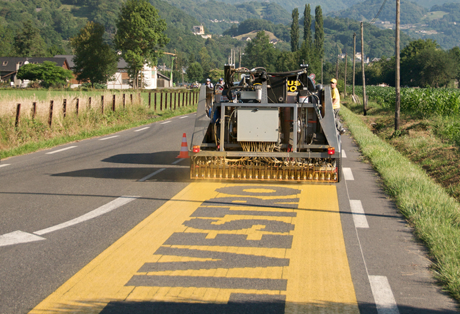We're at the very beginnings of a significant evolution in the way we work — not just in from a technical perspective, although that's a significant driver — but in the culture and nature of work and organizational relationships. The way we work today is markedly different from the way our parents worked, and even more distant from the way their parents worked. The shift is so pronounced in part because knowledge work requires that we manipulate digital objects — be they words, videos, designs, figures, models, or code — rather than physical ones, and that these digital objects represent our production. However, for knowledge workers — designers, engineers, architects, scientists, writers, etc. — while the tools of the trade may have become digital decades ago, the process of working with others, the structure and the framework of engagement, is still catching up. And all the while, the technology continues to race forward.
While digital communication and production tools have made it possible that we no longer need be in the same physical location to collaborate, from a human interaction perspective, it still helps to meet face-to-face, read body language around the table, and share a meal. So, now we exist in a hybrid space where colleagues from across the world can meet up to kick off a project, and then continue working separately, only to meet again at critical moments in the process. Into this new digital world of possibilities, we step with the baggage of the industrial age, whether it's organizational structure, or contract language, or work culture. We're still finding our way and inventing new ways to work together to produce new things.
In our most recent Digital Life podcast episode, Erik Dahl of Involution Studios interviewed Nathan Martin, the CEO of Deeplocal about design and work innovation. Deeplocal, which began as a start-up out of Carnegie Mellon in mapping software, has shifted as an organization several times during its existence. For Martin, "It's not about having no direction. It's about having every direction". The work at Deeplocal today defies easy categorization, but has been described as "post-digital" design — projects that incorporate and integrate the digital life into the physical world. Deeplocal is best known for its work on the Nike Chalkbot, a robot which wrote messages of hope and inspiration from the Livestrong Foundation on the route of the Tour de France in 2009. Those messages were delivered via Twitter, SMS, and the Livestrong Web site, from numerous participants across the world to the robot in France.

The Nike Chalkbot, a robot designed by Deeplocal, wrote messages of hope and inspiration from the Livestrong Foundation on the route of the Tour de France in 2009
Building a culture of innovation, has sent Deeplocal down some non-traditional paths. The shop regularly works with artists in residence who help to infuse the value of art and creative thinking into the company culture. As Martin views it, the designer is the entrepreneurial disruptor. With that in mind, it's important to him that Deeplocal not mimic the aspects of older company models that are not successful or appropriate anymore. For Martin, independence, responsibility, and drive are key elements of the work culture. "If I have a staff of people who sincerely care about what they do, I don't have to manage them in a traditional way," says Martin. Deeplocal is a collective that does the work that needs to get done with a minimum of management, which ultimately means less hierarchy and more shared decision-making.
This kind of loose knit, highly collaborative, yet autonomous work is receiving validation beyond the entrepreneurial disruptors. Companies like game developer Valve Software and source code hosting service GitHub adhere to aspects of this organizational model. Establish the end goal, and let the workers choose the path to get there; Each person is a business unit of one. In this manner, an organization can move quickly, as individuals are responsible for their own management. This is not your father or mother's company structure, by any means.
This self-motivated, hierarchy-less model may be optimized for small teams to produce value at great speed, but large organizations can benefit from this thinking too. Imagine a small consultancy that is hired, not for a specific project by a large company, but to find out where the consultancy's skills are most needed, and then to complete work in that area. For example, software design firms frequently discover that, had they been able to help out a client company significantly earlier in a product cycle, their work would have yielded much more powerful results. And, all too often the opportunity for that kind of work is long past. An earlier engagement that enables discovery of that opportunity would be ideal both from a design and ROI perspective, all the while injecting a larger organization with some of the passion and speed that drives start-ups. In this way it may be beneficial for a large organization to allow nimble strategic partners to look at the big picture, find a problem to solve, and fit in where they're most needed.
In health care, another field impacted greatly by knowledge work and the democratization of information, the current shift to a more preventative and holistic approach to health and wellness, shares some of these very same elements — a patient centered health system flattens the hierarchy, and focuses on outcomes. It's much more effective for a health care professional to help a person lead a healthy lifestyle than it is to reactively fix problems that could and should have been anticipated.
The kind of change in organizational and corporate thinking that such working models demand, isn't likely to happen overnight, but the seeds are planted. It's clear that there is ample opportunity, as we shift work to the digital realm, to rethink the way we work together. The future of knowledge work will be less structured and more ambiguous, built around independence, but reliant on the team. Is your company ready?